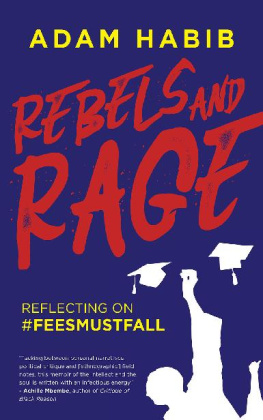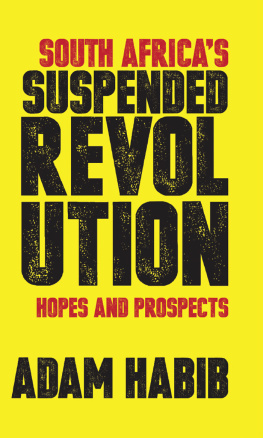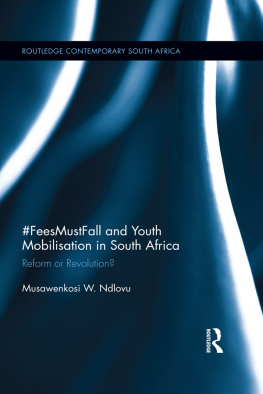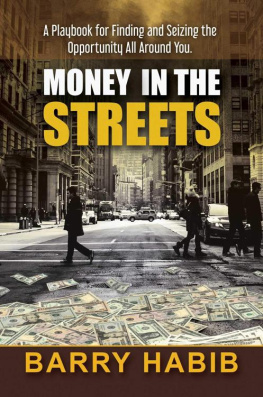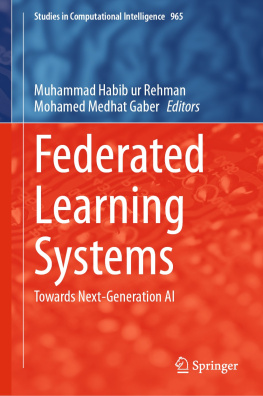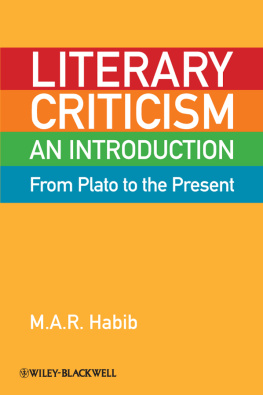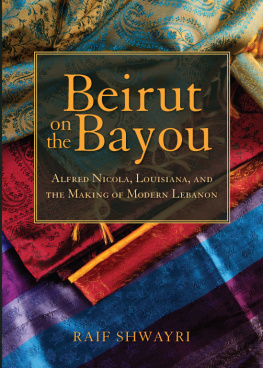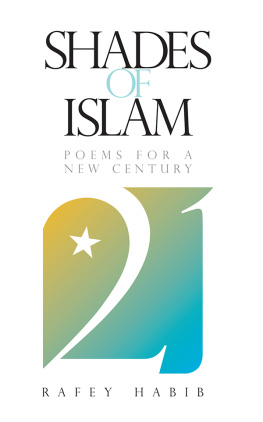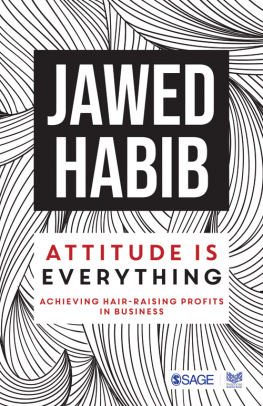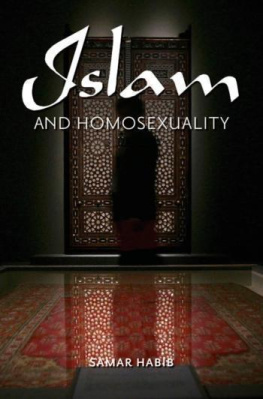REBELS AND RAGE
Reflecting on #FeesMustFall
ADAM HABIB
JONATHAN BALL PUBLISHERS
JOHANNESBURG & CAPE TOWN
Table of Contents
Abbreviations
ANC African National Congress
ANCYL African National Congress Youth League
ASAWU Academic Staff Association of Wits University
BEE black economic empowerment
CALS Centre for Applied Legal Studies
CCMA Commission for Conciliation, Mediation and Arbitration
CFO chief financial officer
CHE Council on Higher Education
COO chief operating officer
COSATU Congress of South African Trade Unions
CPI consumer price inflation
CPUT Cape Peninsula University of Technology
DASO Democratic Alliance Students Organisation
DBE Department of Basic Education
DHET Department of Higher Education and Training
DUT Durban University of Technology
EEF education endowment fund
EFF Economic Freedom Fighters
FNB First National Bank
GDP gross domestic product
GEMP Graduate Entry Medical Programme
GEO Gender Equity Office
HBU historically black university
HEI higher education inflation
IEC Independent Electoral Commission
NECF National Education Crisis Forum
NEDLAC National Economic Development and Labour Council
NEHAWU National Education, Health and Allied Workers Union
NPA National Prosecuting Authority
NSFAS National Student Financial Aid Scheme
NUMSA National Union of Metalworkers of South Africa
NWU North-West University
PASMA Pan Africanist Student Movement of Azania
PSC Palestinian Solidarity Committee
PYA Progressive Youth Alliance
SABC South African Broadcasting Corporation
SACC South African Council of Churches
SAPS South African Police Service
SASCO South African Students Congress
SAUS South African Union of Students
SERI Socio-Economic Rights Institute
SRC Student Representative Council
TUT Tshwane University of Technology
TVET technical vocational education and training
UCT University of Cape Town
UDF United Democratic Front
UJ University of Johannesburg
UKZN University of KwaZulu-Natal
UN United Nations
UNAM National Autonomous University of Mexico
UNISA University of South Africa
UP University of Pretoria
USAf Universities South Africa
UWC University of the Western Cape
VAT value added tax
WISER Wits Institute for Social and Economic Research
YCL Young Communist League
Preface
WE are a haunted executive at Wits University haunted by the fear that we will not rise to the strategic challenge of our era. We do not have the ideological comfort of those at the barricades where there is a certainty in the critique. Neither do we have the emotional serenity of the mainstream corporate executive who is comfortable with the world as it is. Instead, we occupy a lonely nether world where we recognise that things can and must change, yet know that we have to operate within the financial and political constraints of the present. Our strategic task is to craft a bridge between the limits of the present and the possibilities of the future, a bridge we can only build by striking an appropriate balance between our competing institutional priorities.
Long before any of us arrived at Wits, the university adopted a vision of being research intensive. In a sense, it was this vision that attracted us to the job. Part of this may have to do with the academic vanity of leading an institution that has significant research output and postgraduate throughput. But it also has to do with our collective commitment to addressing inequality within the global academy. If we truly believe in an egalitarian world, then we need to work towards a global academy of commons. Such an academy requires South Africa to have its own cohort of research-intensive universities. Otherwise, research and scientific production will remain concentrated in the North; in the context of a globalised, knowledge-based economy, the inequality within our world will continue to prevail.
But our responsibility as Wits executives is also to address the inequality in our national context. Universities can only successfully contribute to addressing inequality if, on the one hand, they produce enough professional graduates that these skills do not command a premium in the market and, on the other, they enable access for students from poor communities. These two goals require universities of sufficient quality to enable throughput but that are either priced appropriately or have sufficient financial aid to allow poor students to access them.
Both of these competing priorities have to be addressed simultaneously in a financially sustainable way. There are, of course, some who believe that our financial fiduciary responsibilities can easily be traded in favour of our academic and social ones. But we need to think through the wisdom of this strategy, in particular because it is premised on a widespread assumption among the far left that the state would be compelled to bail universities out were they to get into a financial crisis. Yet this strategy has been tried before, with devastating consequences. In the late 1990s, what was then the University of Transkei effectively embarked on a strategy to address its historical infrastructural disparities by deliberately pursuing a financial deficit. Within years, the institution was on the brink of insolvency; while the state did eventually bail it out, it did not do so at the levels required or within the timeframes necessary. The net effect was the academic destruction of what was then one of the countrys strongest historically black universities: the financial crisis prompted the departure of top academics and students. The university has never truly recovered.
The tragedy of this strategy is not that it is likely to fail, but rather that it repeats past failures simply because it is dislocated from any understanding of the history of the transformation of the higher education system in this country. It reminds me of a lesson that noted educationist and political activist Neville Alexander once taught me and some of my colleagues. He often remarked that, while he may have been a noted Marxist theoretician and scholar, his socialism only developed political relevance when ANC notable Walter Sisulu taught him African history while they were imprisoned on Robben Island. It is this nationally responsive and contextually relevant Marxism that lies at the core of Nevilles magnum opus, One Azania , One Nation , written soon after his release from Robben Island. This is the lesson that the advocates of fiscal complacency need to learn: if we do not understand our history, and the relevance of our context, we risk repeating the failures of our past.
The strategic imperative of our time is to strike the balance between equally compelling priorities. When I concluded my installation address at Wits University in the Great Hall on 24 August 2013, I underscored the importance of balance in executive decision-making at universities. Reflecting on the experiences and writings of great activists and organic intellectuals Kahlil Gibran, Antonio Gramsci and Steve Biko I stressed that striking the balance between competing priorities is a prerequisite for human progress. This lesson continues to apply to contemporary South Africa. Whether we are speaking of growth and redistribution in the economy, or service delivery and transformation in the state, or national responsiveness and global competitiveness in universities, balancing competing priorities is the precondition for breaking out of our structural impasse and achieving progressive outcomes.

